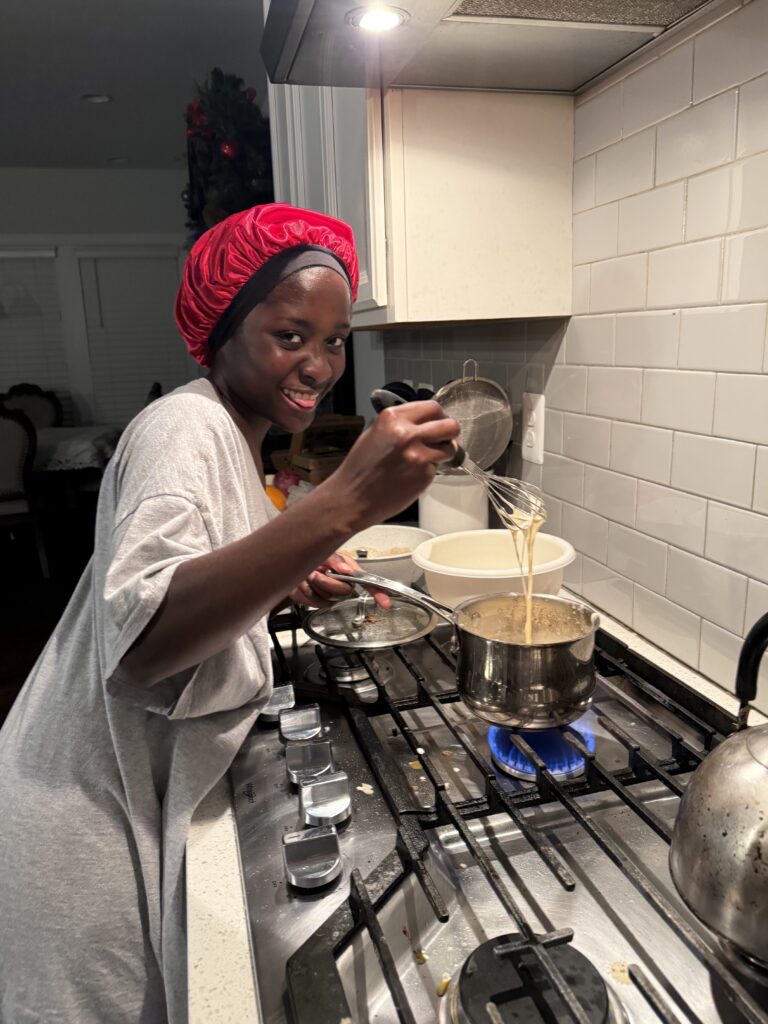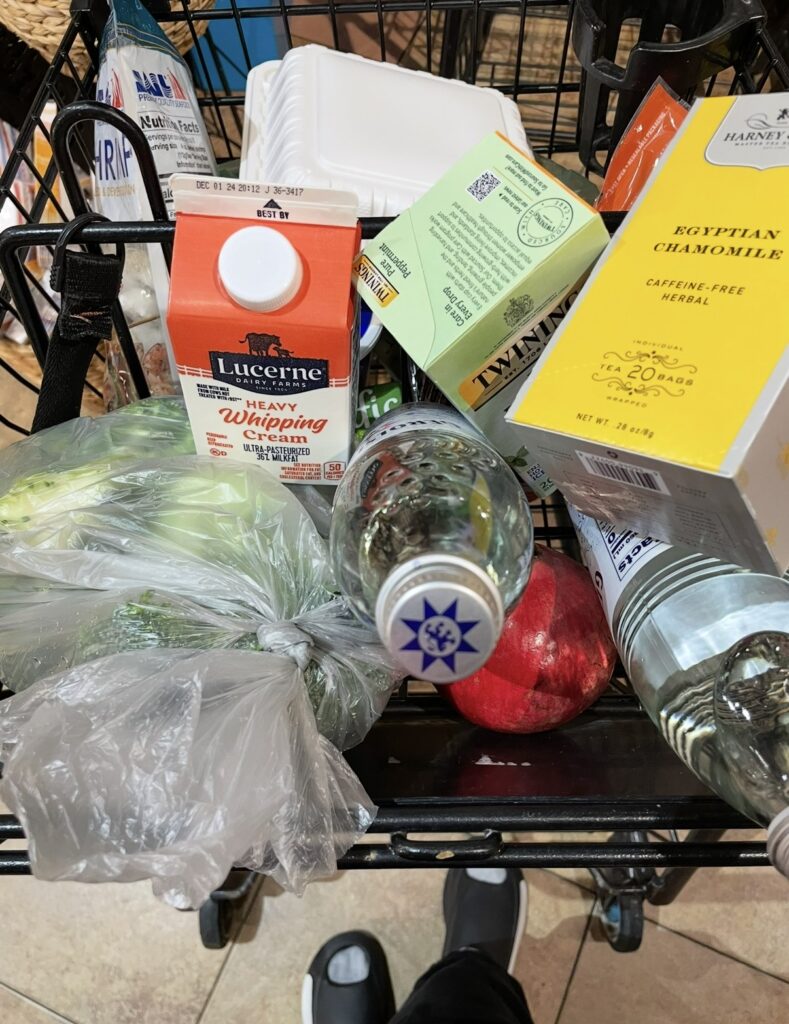On a busy afternoon at Prince George’s Community College, Khloe-Ann Carnegie settles at a campus table, pulling out her favorite snack, a GoGo Squeez applesauce, before diving into her studies. With nutritious food at her side, she can stay focused on assignments, be energized for class, and ready to tackle a full day of work and coursework. Her ability to fuel herself with nutritious meals comes through the Capital Area Food Bank’s grocery gift card pilot program, which she first connected with through PGCC’s Promise Scholarship and campus support services.

A second-year business administration student with a concentration in hospitality, Khloe-Ann balances a full course load with work and other responsibilities. She enjoys working with and meeting new people and connecting with others—skills she practices in her hospitality-focused coursework. Since enrolling, the monthly gift cards have made it possible to shop for foods that support both her health and her academic success.
“It definitely helps me feel more energized,” Khloe-Ann says. “Before I had access to the program, I would eat at home, but my family doesn’t really eat the healthy, organic stuff that I do. I felt like I couldn’t eat as much, and it definitely affected school, work, my energy, and just the vitamins that I would need from certain foods. Since the program, I’m able to get all of that, get my nutrients, and just feel more energized.”
Prince George’s Community College is one of six higher-education institutions that the Capital Area Food Bank partners with across the region, along with Northern Virginia Community College, Montgomery College, George Mason University, the University of the District of Columbia, and Trinity Washington University. Together, these programs serve nearly 550 students across the DMV, providing $150 in monthly grocery support, plus $30 for each additional family member.
Sitting down with her snack before class, Khloe-Ann can focus on studying without worrying about whether she has the energy to power through her day. And when she’s at home or on a break, she enjoys cooking and baking for herself and others. From roasted vegetables to jerk shrimp, she enjoys experimenting with flavors and making healthy foods taste good.

The gift cards also give her peace of mind. “It takes a weight off my shoulders… I don’t have to worry about buying takeout and spending extra money on that. I can cook at home. I love cooking and baking, so I can save money on that and then use the rest for my car maintenance or emergency funds.”
These pilot programs support students who are seeking associate’s and bachelor’s degrees, as well as those enrolled in workforce development certificate programs in high-demand fields such as healthcare, IT, and construction. When students have the resources they need to succeed in school, it supports their long-term financial stability by helping them gain skills and knowledge that can allow them to move from lower-wage jobs to higher-income professions.
For students like Khloe-Ann, access to nutritious food is more than a meal, it’s a stepping stone to graduation and future opportunity.

